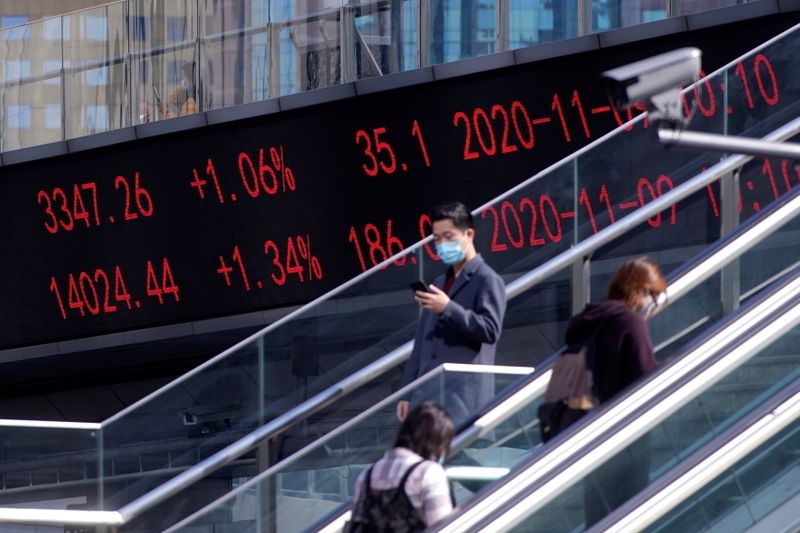This post was originally published on this site

Chinese stocks were the sole outperformers for the day, rebounding from an over one-month low as Beijing vowed more support.
Regional markets took a weak lead-in from Wall Street, which tumbled on Friday amid growing rate cut anxiety and weak earnings from major banks. But U.S. stock index futures rose slightly in Asian trade.
Japan’s Nikkei 225 was among the worst performers for the day, losing 1.2% as investors continued to lock-in profits near recent record highs.
Data showing a rebound in core machinery orders through February- which indicates improved capital spending- did little to buoy sentiment. Consumer price index data for March- due later this week-is a key point of focus for Japanese markets.
South Korea’s KOSPI sank 0.8% as trade data for March showed a limited increase in exports, while imports shrank.
Australia’s ASX 200 lost 0.5%, even as a surge in metal prices boosted some mining stocks.
Futures for India’s Nifty 50 index pointed to a negative open after the index tumbled from record highs on Friday.
Indian inflation readings are also on tap later this week.
Regional markets were grappling with weak risk appetite after an Iranian strike on Israel over the weekend ramped up concerns of a broader war in the Middle East. But the impact of the strike was limited, and Tehran also signaled a conclusion to its offensive against Israel.
Asian stocks also took a weak lead-in from Wall Street’s finish on Friday. U.S. stock indexes had plummeted after a series of weak earnings from major bank stocks.
Hotter-than-expected inflation data released through the past week also saw markets largely scale back expectations of early interest rate cuts.
China’s Shanghai Shenzhen CSI 300 and Shanghai Composite indexes both surged 1.8% and 1.2%, respectively, as they rebounded from 1-½ month lows hit last week.
Sentiment towards local stocks was also supported by local media reports that the Government vowed more support for local capital markets.
Major Government-backed state funds were also seen buying shares of heavyweight Chinese banks, which was a key point of support for China’s stock indexes.
Chinese markets were reeling from a swathe of weak economic data from last week, as inflation and trade readings for March both missed expectations.
Stocks in Hong Kong still reflected negative sentiment towards China. The Hang Seng sank 0.7% on Monday, weighed by losses in mainland stocks.


